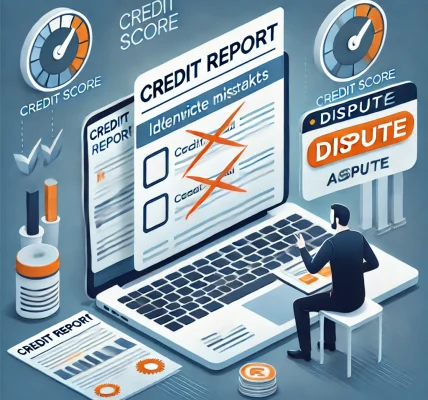Introduction
Your credit score is one of the most important factors influencing your financial health. Whether you’re applying for a credit card, a mortgage, or even renting an apartment, lenders and institutions check your credit history to assess your financial responsibility.
One aspect that many people overlook is the effect of credit inquiries on their credit score. Not all inquiries impact your score the same way—some can cause a temporary dip, while others have no effect at all. Understanding the difference between hard and soft inquiries can help you make smarter financial decisions.
This guide will walk you through:
- What credit inquiries are
- The difference between hard and soft inquiries
- How they impact your credit score
- How to manage credit inquiries wisely
What Are Credit Inquiries?
A credit inquiry occurs when someone—usually a lender, creditor, or financial institution—checks your credit report. These inquiries help assess your creditworthiness and determine your eligibility for loans, credit cards, or other financial services.
Credit inquiries fall into two main categories:
- Hard inquiries (hard pulls)
- Soft inquiries (soft pulls)
Hard Inquiries vs. Soft Inquiries: Understanding the Difference
Hard Inquiries (Hard Pulls)
A hard inquiry takes place when a lender or creditor reviews your credit report as part of a lending decision. These inquiries are typically associated with applications for:
- Credit cards
- Personal loans
- Auto loans
- Mortgages
- Business loans
- Apartment rentals (sometimes)
A hard inquiry can slightly lower your credit score, as it signals that you’re actively seeking new credit. However, the impact is typically small (around 5-10 points per inquiry) and temporary, lasting around 12 months before it stops affecting your score. It remains on your credit report for two years.
How Hard Inquiries Affect Your Credit Score
- A hard inquiry can lower your credit score by a few points (especially if you have multiple inquiries in a short period).
- Too many hard inquiries in a short period can signal credit risk to lenders.
- If you apply for multiple loans within a short timeframe (e.g., mortgage or auto loan shopping), credit scoring models often treat them as a single inquiry (within 14-45 days, depending on the credit bureau).
Soft Inquiries (Soft Pulls)
A soft inquiry occurs when someone checks your credit report for non-lending purposes, such as prequalification, background checks, or personal credit monitoring. These inquiries do not impact your credit score.
Soft inquiries include:
- Checking your own credit report (through services like Credit Karma, Experian, or your bank)
- Pre-approved credit card or loan offers
- Employer background checks
- Landlords checking your credit (sometimes)
- Insurance companies reviewing your credit
Since soft inquiries do not indicate an immediate intent to take on new debt, they do not lower your credit score.
How Many Hard Inquiries Are Too Many?
Lenders view multiple hard inquiries within a short period as a red flag. Here’s what you should keep in mind:
- 1-2 hard inquiries in a year: Generally, this has a minor impact.
- 3-4 inquiries: Lenders might start questioning why you’re applying for multiple lines of credit.
- 5+ inquiries in a short time: Can make lenders skeptical and lead to rejections or higher interest rates.
The 14-45 Day Rule for Rate Shopping
If you’re applying for an auto loan, mortgage, or student loan, multiple hard inquiries within a short period (usually 14-45 days) are counted as one inquiry. This encourages consumers to shop for the best interest rates without being penalized for multiple applications.
How to Minimize the Impact of Hard Inquiries
- Only Apply for Credit When Necessary: Avoid unnecessary credit card or loan applications.
- Check Pre-Qualification Offers: Many banks and lenders offer soft pull pre-approvals, allowing you to see if you qualify without impacting your score.
- Limit Hard Inquiries: Space out credit applications to prevent multiple hard pulls at once.
- Use Rate Shopping Smartly: Apply for mortgages, auto loans, or student loans within a short window to ensure multiple inquiries count as one.
- Monitor Your Credit Report: Regularly check your credit report for unauthorized inquiries and dispute any fraudulent hard inquiries.
How to Dispute Unauthorized Hard Inquiries
If you notice an unauthorized hard inquiry on your credit report, take these steps:
- Contact the Creditor: Ask them to verify the inquiry.
- Dispute with the Credit Bureau: File a dispute with Experian, Equifax, or TransUnion to remove unauthorized inquiries.
- Place a Fraud Alert or Freeze Your Credit: If you suspect identity theft, freeze your credit report to prevent further unauthorized activity.
Conclusion
Understanding the difference between hard and soft inquiries is key to protecting your credit score. While hard inquiries can have a temporary impact, responsible credit management can minimize their effect. Soft inquiries, on the other hand, are completely harmless and a great way to monitor your financial health.




